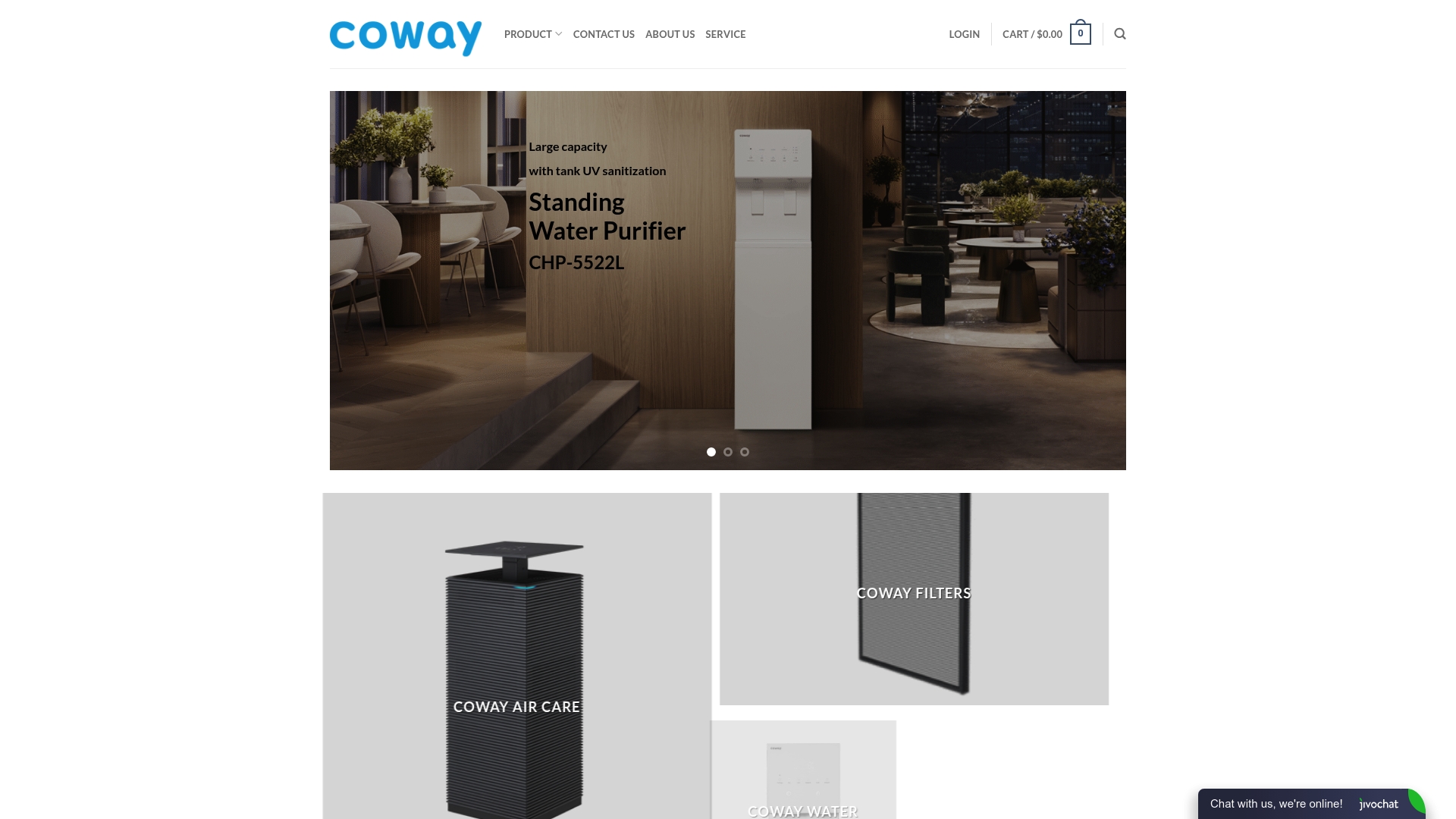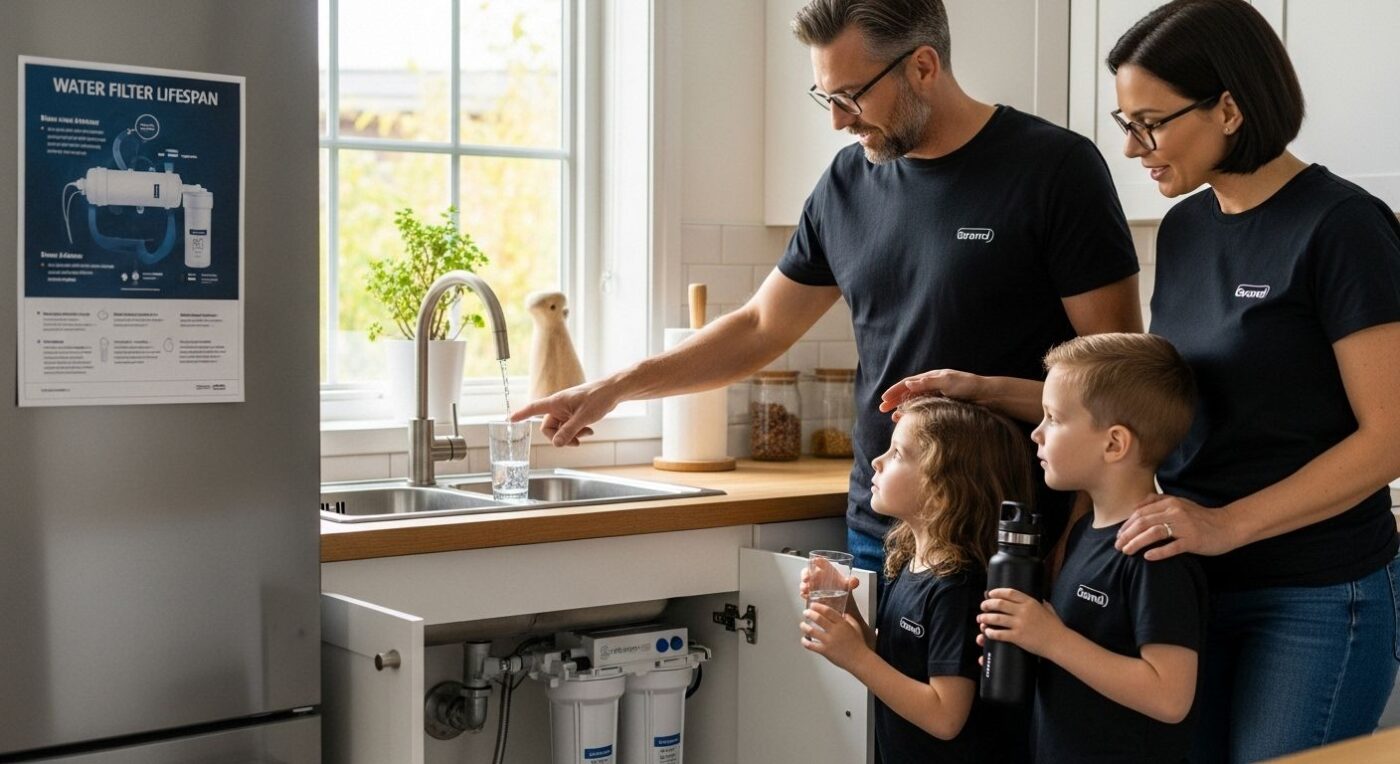Uncategorized
Understanding Water Filter Lifespan: Key Insights Explained
Most people think their water filter is working as long as water keeps flowing from the tap. Surprisingly, studies show old or saturated filters can actually release trapped contaminants back into your drinking water, making things worse instead of better. That means replacing your filter on time does more than just keep things tasting fresh. It is a direct line of defense for your health.
Table of Contents
- What Is Water Filter Lifespan And Why Is It Important?
- Factors Affecting The Lifespan Of Water Filters
- How Water Filters Work: Understanding Their Mechanisms
- Signs It’s Time To Replace Your Water Filter
- Real-World Implications Of Water Filter Lifespan
Quick Summary
| Takeaway | Explanation |
|---|---|
| Monitor your water filter regularly. | Regular checks can identify signs of filter degradation before health risks emerge. |
| Replace filters according to schedule. | Timely replacements ensure effective contaminant removal and safeguard your drinking water quality. |
| Understand factors affecting lifespan. | Water quality, contaminant levels, and filter usage significantly impact how long your filter lasts. |
| Watch for warning signs. | Discoloration, odor, and taste changes signal that your filter may need replacement. |
| Invest in maintenance for longevity. | Proper care and maintenance can extend your water filter’s operational life and enhance performance. |
What is Water Filter Lifespan and Why is it Important?
Water filter lifespan represents the period during which a water filtration system effectively removes contaminants and maintains water quality before requiring replacement. Understanding this critical aspect ensures consistent access to clean, safe drinking water for households and businesses.
The Science Behind Water Filter Performance
Water filters operate through complex mechanisms designed to trap and eliminate various impurities. NSF International explains that filters, particularly those using carbon or charcoal, become saturated with contaminants over time. This saturation progressively reduces their ability to effectively filter water, potentially releasing trapped impurities back into the drinking supply.
Key Factors Determining Water Filter Effectiveness
Several crucial elements influence a water filter’s operational duration and performance:
- Contaminant Concentration: Higher levels of pollutants accelerate filter degradation
- Water Quality: Municipal water composition directly impacts filtration efficiency
- Usage Volume: Frequency and quantity of water processed decrease filter longevity
Regular maintenance and timely replacement are essential to guaranteeing optimal water purification. Consumers should track their water filter replacement schedules to maintain consistent water quality and protect their health.
Proactive monitoring of water filter performance prevents potential health risks associated with compromised filtration systems. By understanding and respecting water filter lifespan, individuals can ensure continuous access to clean, safe drinking water.
Factors Affecting the Lifespan of Water Filters
Water filter lifespan varies significantly based on multiple interconnected variables that impact their performance and durability. Understanding these factors helps consumers make informed decisions about maintenance and replacement strategies.
To help clarify the primary factors that influence water filter lifespan and performance, the following table summarizes the key determinants and their impact on filtration effectiveness.
| Factor | Description | Impact on Lifespan |
|---|---|---|
| Contaminant Concentration | Higher pollutant levels in water | Shortens filter lifespan |
| Water Quality | Sediment, minerals, and chemical composition in source water | Directly affects longevity |
| Usage Volume | Amount of water processed daily | Increases wear with volume |
| Maintenance Frequency | Regular cleaning or servicing | Extends lifespan |
| Filter Material Composition | Durability of carbon, ceramic, or membrane materials | Influences operational life |
| Environmental Conditions | Temperature, humidity, and installation environment | Can accelerate degradation |
Water Quality and Contaminant Composition
Purdue University Extension highlights that water quality plays a pivotal role in determining filter longevity. Different water sources contain varying levels of sediments, minerals, and chemical compounds that directly influence filter degradation rates. Municipal water with high mineral content or significant particulate matter accelerates filter wear and reduces operational effectiveness.
Critical Performance Determinants
Several key elements substantially impact water filter performance and lifespan:
- Water Source Characteristics: Composition of incoming water affects filter efficiency
- Daily Water Consumption: Higher usage volumes decrease filter operational duration
- Maintenance Frequency: Regular cleaning and professional servicing extend filter life
- Filter Material Composition: Different filtration technologies have unique durability profiles
Proactive monitoring requires understanding these intricate dynamics. Consumers should regularly assess their water filter maintenance needs to ensure consistent water quality and system performance.
Environmental and Usage Considerations
External factors such as temperature fluctuations, humidity levels, and installation environment can dramatically influence filter performance. Filters installed in areas with extreme temperatures or high moisture might experience accelerated degradation compared to those in stable environmental conditions. Understanding these nuanced interactions empowers users to optimize their water filtration systems and maximize their operational lifespan.
How Water Filters Work: Understanding Their Mechanisms
Water filtration represents a sophisticated process of removing contaminants through multiple advanced technological approaches. Understanding these intricate mechanisms helps consumers appreciate the complexity behind producing clean, safe drinking water.
Filtration Technology Fundamentals
Water filters employ diverse strategies to eliminate impurities, utilizing physical, chemical, and biological filtration techniques. These methods work synergistically to trap and neutralize potentially harmful substances present in water sources. Mechanical filtration involves physically blocking particles through microscopic pores, while adsorption processes capture dissolved contaminants using specialized media like activated carbon.
Core Filtration Mechanisms
Different water filter technologies leverage unique principles for purification:
- Physical Barrier Filtration: Blocks particulate matter through progressively smaller membrane pores
- Activated Carbon Filtration: Attracts and traps chemical compounds through molecular adhesion
- Ion Exchange Technology: Removes dissolved minerals by exchanging problematic ions with harmless alternatives
- Reverse Osmosis: Forces water through ultra-fine membranes, eliminating microscopic contaminants
Consumers interested in understanding more about these complex processes can explore advanced water purification technologies to gain deeper insights into water treatment methodologies.

Performance and Precision
The effectiveness of water filters depends on their precise engineering and material composition. Advanced filtration systems combine multiple technologies to ensure comprehensive water purification. Each filtration stage targets specific contaminant types, creating a multi-layered defense against potential water quality issues. This systematic approach guarantees that water passes through increasingly refined filtering processes, ultimately delivering clean, safe drinking water for household and commercial use.
Signs It’s Time to Replace Your Water Filter
Recognizing when a water filter needs replacement is crucial for maintaining water quality and protecting household health. Timely identification of deteriorating filter performance prevents potential contamination and ensures consistent water safety.
Visual and Sensory Warning Indicators
Environmental Literacy Council highlights several key signals that indicate a water filter requires immediate replacement:
- Water Discoloration: Cloudy or tinted water suggests compromised filtration
- Unusual Odors: Strange smells indicate potential bacterial growth or filter saturation
- Altered Taste: Metallic or chemical tastes signal filtration system breakdown
- Reduced Water Pressure: Slower water flow demonstrates filter pore blockage
Performance Degradation Indicators
Water filter effectiveness diminishes gradually, making continuous monitoring essential. Consumers should pay attention to subtle changes in water quality that might not be immediately apparent. Sediment accumulation and reduced filtration efficiency are critical signs of a filter approaching the end of its operational lifecycle.
Proactive Maintenance Strategies
Regular assessment helps prevent unexpected filter failures. Homeowners should maintain detailed records of filter installation dates and track manufacturer recommended replacement intervals. Explore professional water filter maintenance guidelines to develop a systematic approach to water filtration system management. By understanding and responding to these warning signs, individuals can ensure consistent access to clean, safe drinking water while protecting their health and household infrastructure.
Real-World Implications of Water Filter Lifespan
Water filter performance extends far beyond technical specifications, directly impacting human health, environmental sustainability, and economic considerations. Understanding the broader consequences of filter maintenance helps consumers make informed decisions about their water treatment systems.
Health and Safety Consequences
Public Health Research demonstrates that inconsistent water filter maintenance can lead to significant health risks. Degraded filters become breeding grounds for harmful microorganisms, potentially introducing contaminants into drinking water instead of removing them. Bacterial proliferation and reduced filtration efficiency can compromise immune system protection, especially for vulnerable populations.
Economic and Environmental Considerations
Water filter lifespan impacts multiple dimensions of resource management:
- Financial Investment: Premature filter replacements increase household expenses
- Water Resource Efficiency: Poorly maintained filters waste water and energy
- Infrastructure Protection: Timely replacements prevent potential damage to plumbing systems
- Environmental Sustainability: Responsible filter management reduces waste generation
Consumers can explore advanced water filtration strategies to optimize their system’s performance and minimize long-term environmental impact.
Technological and Social Implications
The real-world performance of water filtration systems transcends individual household experiences. Consistent filter maintenance represents a critical intersection of personal health practices, technological innovation, and broader environmental stewardship. By understanding and respecting water filter lifespan, individuals contribute to a more sustainable approach to water resource management, protecting both personal and community well-being.

Ready for Reliable Water Purification? Discover the Coway Advantage Now
Worried about when your water filter will stop working and put your health at risk? The article highlights how unnoticed filter degradation can affect your safety, with issues like reduced water quality, unexpected bacterial growth, and costly system failures. These concerns make it clear why you need a water purifier you can trust for consistent performance and easy maintenance. That is where we come in.
Explore our most advanced water purifier solutions designed to take the guesswork out of filter lifespan. Our systems use powerful multi-stage filtration, innovative UV sanitization, and come with comprehensive service options. Say goodbye to doubts about replacement schedules and enjoy peace of mind backed by science and reliable care.

Make the switch to a better water experience today. Visit Coway Water Purifier to find the perfect system for your home. Protect your health and simplify your life by choosing a water purifier built for safety and lasting performance. Shop now and see the difference for yourself.
Frequently Asked Questions
What is the average lifespan of a water filter?
The average lifespan of a water filter varies depending on its type and usage, but typically ranges from 6 months to 2 years. Factors such as water quality and contaminant concentration significantly influence this timeframe.
How can I tell when my water filter needs to be replaced?
You can recognize the need for replacement through visual indicators like water discoloration, unusual odors, or a change in taste. Additionally, reduced water pressure can signify that the filter is clogged and needs replacement.
What factors affect the effectiveness of a water filter?
Several factors affect a water filter’s effectiveness, including the concentration of contaminants in the water, the overall quality of the water source, and the volume of water processed through the filter. Regular maintenance is also crucial for sustaining performance.
What are the consequences of using an expired water filter?
Using an expired water filter can lead to health risks, as degraded filters may fail to remove harmful contaminants and can even harbor bacteria, compromising water quality and safety.
Recommended
- Home – Coway Water Purifier
- coway water filter – Coway Water Purifier
- coway air filter – Coway Water Purifier
- Countertop Water Purifiers Archives – Coway Water Purifier
Article generated by BabyLoveGrowth

